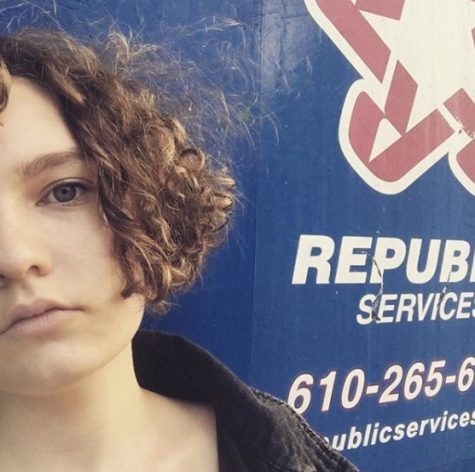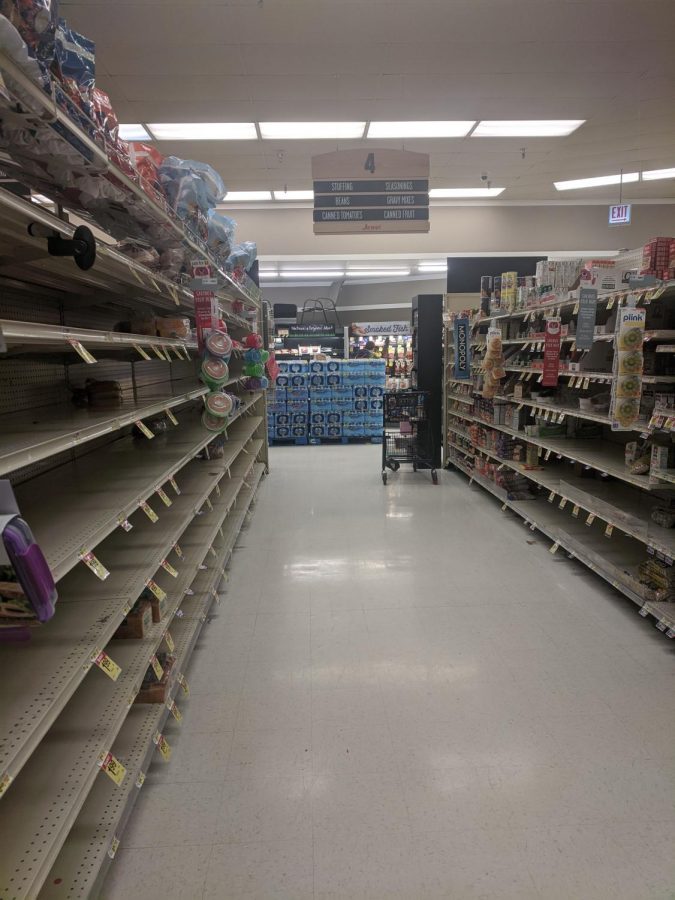How Coronavirus is Killing Working Class America
Wash your hands, quarantine yourself, practice social distancing! You’ve heard it all before and you’re probably sick of hearing it. Surviving this virus requires a lot of self-control and maybe some bored and lonely hours. But what is it taking from other sectors of the American population?
The problem with social distancing and quarantine is that not everyone can easily stay home. Many are relying on their hourly wages to keep their home and pay their bills, or to buy groceries and necessary items for their families. Especially for people working multiple pay-per-hour jobs, this could completely destroy their lives.
Additionally, many of these jobs do not have protections such as healthcare or paid sick leave, so unlike many people working white collar jobs, this time off is not protected. This will affect all areas of their lives, but the two most pressing matters are:
- Food
For those who already struggle with providing food for their families, this social distancing is a nightmare. If people have to travel many miles or take public transportation, this puts their safety and their family’s safety in jeopardy. Many are forced to make hard decisions on whether to stock up food and risk the health of their family or to have to ration the food they already have. Additionally, those with means have been raiding grocery stores, leaving fewer options for the disadvantaged.
- Housing
Though some laws and protections are being put in place, renters still have to pay rent during this time. For those who struggle to make rent each month, having their income cut off surely will not help the situation. They may have to borrow money speculatively or be evicted, though many landlords are being more flexible during this time.
The virus also is more likely to kill the poor. The elderly, the immunocompromised, and those with poor respiratory health are most vulnerable to its damage. Poor respiratory health is often found in poor communities where access to healthcare is limited.
Additionally, studies done by the National Institute for Health found that poor communities are more heavily affected by diabetes than other populations, due to the prevalence of urban food deserts or no access to a variety of fresh produce. The elderly are some of the poorest people in the US because they are no longer working. This forces them to move into areas with poor healthcare, where hospitals will be easily overwhelmed and they will not receive the necessary care if infected.
The most troubling part, noted by TIME Magazine writer Abby Vesoulis, is that, “The COVID-19 outbreak hasn’t caused these underlying problems, but it has highlighted the deficits within the U.S.’s fragile social safety net.” No matter the crisis, the working class will be hit the hardest, because of their lack of access to proper healthcare, stable jobs, and nutritious food.
This circles back to a question that has been asked in America for decades: if this is supposed to be the land of opportunity and socioeconomic mobility, how do you expect the working class to move up in the ranks if they are being knocked down hardest at every bump in the road?
This virus has made it clear to many who could not see it before that the lack of freedom and stability comes with being a member of working class America. However, that will require huge swaths of legislation in order to more evenly distribute wealth among American citizens. For the moment, there are more actionable problems to tackle:
- Donate money to your local food banks
In our area, the best food banks to donate to are the Narberth Food Bank and Philabundance as they serve our immediate community. Providing food for those who can’t access or afford it, similar to the Lower Merion School lunch program right now, will help conserve wages to pay for rent, bills, and necessary supplies to support families through this time.
- Sign campaigns that advocate for healthcare and paid leave for workers
Recently, there was a successful campaign to make sure workers at the Free Library of Philadelphia and the entire Philadelphia library system secured paid leave. Movements like these allow for greater job security and will benefit the economy in the long run to help these people stay on their feet through the crisis. If we can secure these rights for other jobs, we will be able to spare members of our community from the harrowing experience of pulling your life back together after a major economic crisis.
- Do not hoard. Do not buy things you do not need. And do not purchase anything with a red box that says “WIC” on the label.
 When a family receives food stamps from the government, there are only certain foods that the government will allow you to buy. These items are marked with a WIC tag that looks like this:
When a family receives food stamps from the government, there are only certain foods that the government will allow you to buy. These items are marked with a WIC tag that looks like this:
It stands for the Special Supplemental Nutrition Program for Women Infants and Children, and it is the way the government subsidizes food for those living below the poverty line. If the store runs out of those foods, those families can not buy other food at the store because they can not afford it. So, please take that into consideration when going grocery shopping.
- Regular soap will do!
On the few trips to CVS I have made, I have found people attempting to stock up on antibacterial soap, hand sanitizer, Clorox wipes, etc. Most of this is unnecessary!
For those of you who have not taken chemistry, you only need to know that polar molecules stick to each other and nonpolar molecules stick to each other. Viruses are nonpolar. Water is polar. Soap is a majority nonpolar molecule with one polar end. This is regular soap, not antibacterial soap. When you wash your hands, dishes, or any surface with regular soap, COVID-19 and other viruses will stick to the nonpolar end of the soap molecule. When you rinse it, the water pulls the polar end of the soap molecule, pulling the entire bundle (virus, soap, and all) off of your hands, dishes, clothes, and surfaces.
Antibacterial hand soap does not do anything more than that, but it does increase the risk of speeding along the development of a superbug. Try to stick to regular soap and water unless you are in a medical environment such as a hospital. You are taking away supplies from people and places that may really need them.
This is a hard time for everyone, and we all have our own concerns about our family and friends. But please take a moment to think about those in our community who may be hit hardest by this virus, because if we don’t help these people, the consequences could be devastating for millions.

Sammy is so psyched to be an editor this year, and be back at The Banner for her fourth year as a writer! She can't wait to hear all of the opinions that...



John W Roberts Jr • Apr 12, 2020 at 12:09 pm
Every so often, I wonder and wander back to my home ground to see what people are up to. This includes my HS Alma Mater 1960. Yep, I am an old guy
From your article which is well written. “you only need to know that polar molecules stick to each other and nonpolar molecules stick to each other”. ??? Is that what you meant to say?
Just a cranky old physicist’s observation as I have time to read lots of items. Keep up your nice work and best wishes for a successful future. Stay healthy as I note Philadelphia is hard hit of late by COVID-19